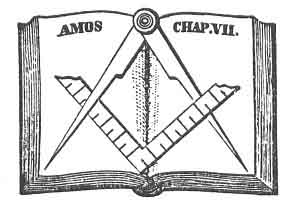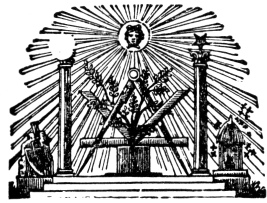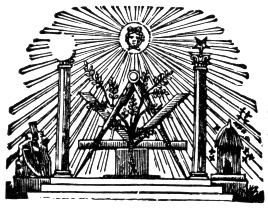p. 44
Liberty is the summit, Equality the base. Equality is not all vegetation on a level, a society of big spears of grass and stunted oaks, a neighborhood of jealousies, emasculating each other. It is, civilly, all aptitudes having equal opportunity; politically, all votes having equal weight; religiously, all consciences having equal rights.
Equality has an organ;–gratuitous and obligatory instruction. We must begin with the right to the alphabet. The primary school obligatory upon all; the higher school offered to all. Such is the law. From the same school for all springs equal society. Instruction! Light! all comes from Light, and all returns to it.
We must learn the thoughts of the common people, if we would be wise and do any good work. We must look at men, not so much for what Fortune has given to them with her blind old eyes, as for the gifts Nature has brought in her lap, and for the use that has been made of them. We profess to be equal in a Church and in the Lodge: we shall be equal in the sight of God when He judges the earth. We may well sit on the pavement together here, in communion and conference, for the few brief moments that constitute life.
A Democratic Government undoubtedly has its defects, because it is made and administered by men, and not by the Wise Gods. It cannot be concise and sharp, like the despotic. When its ire is aroused it develops its latent strength, and the sturdiest rebel trembles. But its habitual domestic rule is tolerant, patient, and indecisive. Men are brought together, first to differ, and then to agree. Affirmation, negation, discussion, solution: these are the means of attaining truth. Often the enemy will be at the gates before the babble of the disturbers is drowned in the chorus of consent. In the Legislative office deliberation will often defeat decision. Liberty can play the fool like the Tyrants.
Refined society requires greater minuteness of regulation; and the steps of all advancing States are more and more to be picked among the old rubbish and the new materials. The difficulty lies in discovering the right path through the chaos of confusion. The adjustment of mutual rights and wrongs is also more difficult in democracies. We do not see and estimate the relative importance of objects so easily and clearly from the level or the waving land as from the elevation of a lone peak, towering above the plain; for each looks through his own mist.
p. 45
Abject dependence on constituents, also, is too common. It is as miserable a thing as abject dependence on a minister or the favorite of a Tyrant. It is rare to find a man who can speak out the simple truth that is in him, honestly and frankly, without fear, favor, or affection, either to Emperor or People.
Moreover, in assemblies of men, faith in each other is almost always wanting, unless a terrible pressure of calamity or danger from without produces cohesion. Hence the constructive power of such assemblies is, generally deficient. The chief triumphs of modern days, in Europe, have been in pulling down and obliterating; not in building up. But Repeal is not Reform. Time must bring with him the Restorer and Rebuilder.
Speech, also, is grossly abused in Republics; and if the use of speech be glorious, its abuse is the most villainous of vices. Rhetoric, Plato says, is the art of ruling the minds of men. But in democracies it is too common to hide thought in words, to overlay it, to babble nonsense. The gleams and glitter of intellectual soap-and-water bubbles are mistaken for the rainbow-glories of genius. The worthless pyrites is continually mistaken for gold. Even intellect condescends to intellectual jugglery, balancing thoughts as a juggler balances pipes on his chin. In all Congresses we have the inexhaustible flow of babble, and Faction’s clamorous knavery in discussion, until the divine power of speech, that privilege of man and great gift of God, is no better than the screech of parrots or the mimicry of monkeys. The mere talker, however fluent, is barren of deeds in the day of trial.

Moe is the founder of GnosticWarrior.com. He is a father, husband, author, martial arts black belt, and an expert in Gnosticism, the occult, and esotericism.






